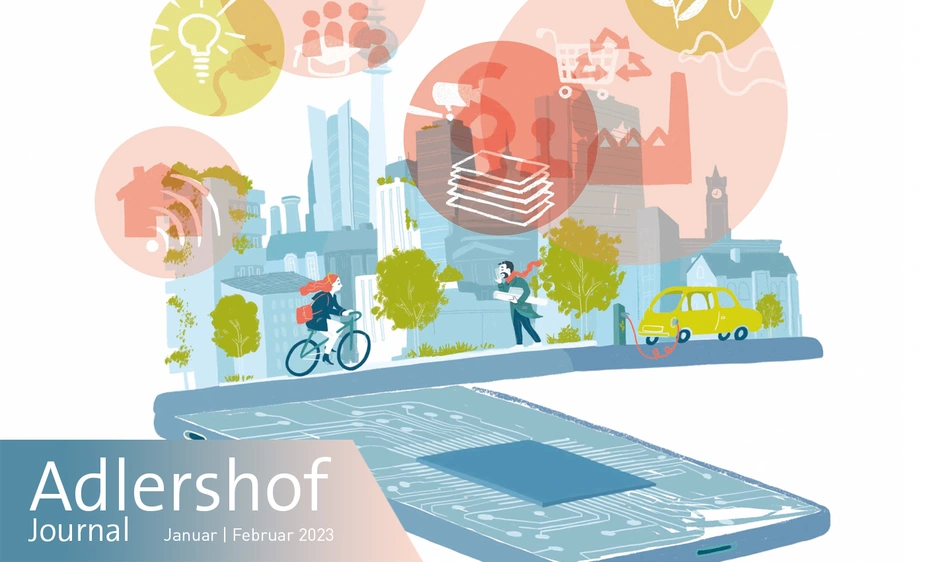The digital city – the future of places generating future innovation
Essay by Dr. Hans-Hermann Albers, architect, urban researcher, and consultant from Berlin
For almost two decades now, the digitalisation of cities has been a stand-out issue in the international discourse around urban development. On the one hand, this discussion is about constructing entirely new “cities of the future” with heavy use of digital technologies for urban infrastructures. On the other hand, it’s about retrofitting or complementing existing cities with novel intelligent or smart solutions in the areas of mobility and transportation, communication and data processing as well as energy and water supply, but also the digitalisation of the administration and the social infrastructure. The increasing digitalisation of cities is an enormous growth market. The revenues forecast for Germany in 2026 amount to 85 billion euros.
However, the digitalisation of cities is not merely a new commercial outlet and an instance of technological progress. Since the first plans for smart cities were drawn, it has been inextricably linked to ideas of sustainable city planning. While, in the early years, this objective was shaped by technocratic measures, a homogenous landscape of actors, and several undesirable developments, today’s development follows more needs-oriented and holistic approaches, has been professionalised, and is made up of multilateral constellations of actors. Furthermore, there are guidelines in place, including the Smart City Charta of the Federal Ministry for Environment, Nature Conservation and Nuclear Safety (2017) in combination with the sustainability goals laid out in the New Urban Agenda of the United Nations (2016). According to both, the digitalisation of cities is now being understood as a response to the question of how to reconcile the demands people have to their cities, quality of life, climate protection, climate change, as well as the requirements laid down by private enterprises. Against this backdrop, many current smart city projects are now seen as real-life laboratories for digitalisation, in which cooperation between private enterprises, the public sector, science and research, and civil society is working towards a common goal: the pairing of knowledge and innovation as a basis for sustainable products and services and, ultimately, sustainable urban development. Consequently, the digitalisation of cities is not an end in itself and is more than supplying cities with technical infrastructures and data networks. It is an extensive issue of innovation.
Berlin’s Zukunftsorte, places across the city generating future innovation, are part of this development and must be thought of as an integrated and interconnected part of digitalisation and data strategies for the entire city. In these places, digitalisation is a facilitator of innovation. A prerequisite for them is the availability of modern and secure technical infrastructures. However, the decisive components include suitable digital platforms, IoT applications, and networks that make sure cooperation between industry and research is successful.
These requirements go hand in hand with providing the physical spaces needed for the development of ideas and products such as fab labs, co-working and maker spaces. They further include new working time models, logistics and mobility services, which facilitate digital and mobile work, connecting innovation hubs with cities and regions, and enabling companies to set up new branches along so-called future or innovation corridors. The digital development of these Zukunftsorte must therefore be conceived across locations and it is closely linked to the potential for innovation in the digital development of cities and regions.
Dr. Hans-Hermann Albers is a freelance architect, urban researcher, and consultant working from Berlin. He studied architecture and urban planning in Graz, Athens, and Helsinki. His key areas of work, teaching and research include CSR and sustainable urban development, digital urban development, urban and regional economics, and real estate economics. He is a lecturer and researcher in the field of city and regional economy at the Institute of Urban and Regional Planning of Technische Universität Berlin.
